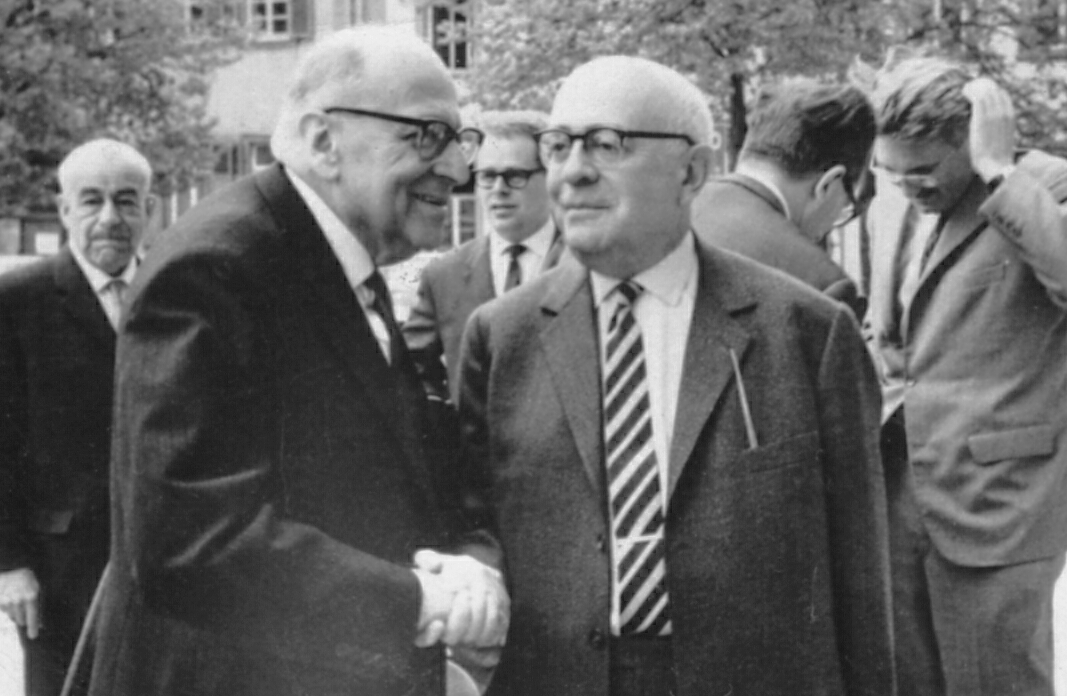Source: "The End of Reason" (1941), p. 34.
Works

Eclipse of Reason
Max HorkheimerFamous Max Horkheimer Quotes
Source: Eclipse of Reason (1947), p. 50.
“When even the dictators of today appeal to reason, they mean that they possess the most tanks.”
Source: "The End of Reason" (1941), p. 28.
Context: When even the dictators of today appeal to reason, they mean that they possess the most tanks. They were rational enough to build them; others should be rational enough to yield to them.
Source: Eclipse of Reason (1947), p. 53.
John Cumming trans., p. 7.
Dialektik der Aufklärung [Dialectic of Enlightenment] (1944)
Max Horkheimer Quotes about ideas and thoughts
Source: Eclipse of Reason (1947), p. 10.
Source: Eclipse of Reason (1947), p. 4.
describing the pragmatist view, p. 42.
Eclipse of Reason (1947)
Source: Eclipse of Reason (1947), p. 52.
Source: Eclipse of Reason (1947), p. 34.
Source: Eclipse of Reason (1947), p. 6.
Max Horkheimer: Trending quotes
Source: "The Latest Attack on Metaphysics" (1937), p. 137.
describing the pragmatist view, pp. 46-47.
Eclipse of Reason (1947)
Max Horkheimer Quotes
Source: "The Latest Attack on Metaphysics" (1937), p. 162.
Source: Eclipse of Reason (1947), p. 21.
Source: "The Latest Attack on Metaphysics" (1937), p. 148.
Source: "The End of Reason" (1941), p. 44.
E. Jephcott, trans., p. 17.
Dialektik der Aufklärung [Dialectic of Enlightenment] (1944)
Source: Eclipse of Reason (1947), p. 12.
Source: Eclipse of Reason (1947), p. 30.
Source: Eclipse of Reason (1947), p. 36.
Source: "The Latest Attack on Metaphysics" (1937), p. 149.
Source: "The Latest Attack on Metaphysics" (1937), p. 138.
Source: Eclipse of Reason (1947), p. 9.
Eclipse of Reason (1947)
Source: "The Latest Attack on Metaphysics" (1937), p. 155.
E. Jephcott, trans., p. 9.
Dialektik der Aufklärung [Dialectic of Enlightenment] (1944)
Source: "The End of Reason" (1941), p. 45.
“Answers determined by the social division of labor become truth as such.”
Source: Eclipse of Reason (1947), p. 50: Describing the pragmatist view
“Having given up autonomy, reason has become an instrument.”
Source: Eclipse of Reason (1947), p. 21.
Source: "The Latest Attack on Metaphysics" (1937), p. 133.
Source: Eclipse of Reason (1947), p. 18.
Source: "The End of Reason" (1941), p. 41-42.
describing the pragmatist view, p. 49.
Eclipse of Reason (1947)
Source: "The Latest Attack on Metaphysics" (1937), p. 144.
Source: Eclipse of Reason (1947), p. 14.
Source: Eclipse of Reason (1947), pp. 7-8.
Source: "The Latest Attack on Metaphysics" (1937), p. 145.
Source: "The Latest Attack on Metaphysics" (1937), p. 148.
Source: "The Latest Attack on Metaphysics" (1937), p. 133.
describing the pragmatist view, p. 51.
Eclipse of Reason (1947)
Source: Eclipse of Reason (1947), p. 21.
"Thoughts on Religion," Critical Theory: Selected Essays (1995), p. 129.
Source: Eclipse of Reason (1947), p. 23.
Source: Eclipse of Reason (1947), p. 29.
Source: Eclipse of Reason (1947), p. 38.
Source: Eclipse of Reason (1947), pp. 26-27.
Source: "The Latest Attack on Metaphysics" (1937), p. 133.
Source: Eclipse of Reason (1947), p. 33.
Source: "The End of Reason" (1941), p. 29.
Source: Eclipse of Reason (1947), pp. 21-22.
Source: "The Latest Attack on Metaphysics" (1937), p. 146.
Source: "The Latest Attack on Metaphysics" (1937), p. 150.
Source: "The End of Reason" (1941), p. 45.
